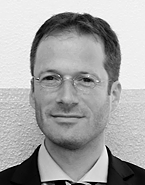
arnauld@wsi.uni-kiel.de
Professor for Public Law, Public International and European Law, Kiel University
Born in Hamburg on October 17, 1970, Andreas von Arnauld de la Perrière studied law in Hamburg and Bonn. Following his First State Examination (1994), he worked as assistant to Professor Dr. Dr. h.c. Ingo von Münch at Hamburg University’s Institute for International Affairs. After having received his doctorate (Dr. jur., 1998) and passed his Second State Examination (1999) he became research and teaching assistant (post-doc) to the Chair of Public Law, Public International Law, European Law and Constitutional History (Professor Dr. Albrecht Randelzhofer) at Berlin Free University.
In February 2005, Andreas von Arnauld was awarded his post-doctoral degree (Habilitation) at the Facultuy of Law, Free University of Berlin. He received the teaching credentials (venia legendi) for Public Law, Public International and European Law, Legal Philosophy and Legal Theory. After having served as Acting Professor in Berlin 2005/06, he moved on to Helmut Schmidt University/University of the Federal Armed Forces in Hamburg where he was appointed (Full) Professor of Public Law, Public International and European Law in February 2007. From April 2012 to Ocober 2013, he held the Chair of Public International and European Law at the University of Münster (Westphalia).
Since October 1, 2013, Andreas von Arnauld is Professor for Public Law, Public International and European Law at Kiel University and Co-Director of the Walther Schücking Institute for International Law. His research (un)focusses on international peace and security, peaceful settlement of dispute and the laws of armed conflict; on German, European and Comparative Constitutional Law (with a focus on human rights and the rule of law). Throughout his teaching and research, Andreas von Arnauld has a penchant for dealing with the fundamentals of law and for interdisciplinary exchange, especially with Social and Political Sciences as well as Cultural Studies and Literary Criticism